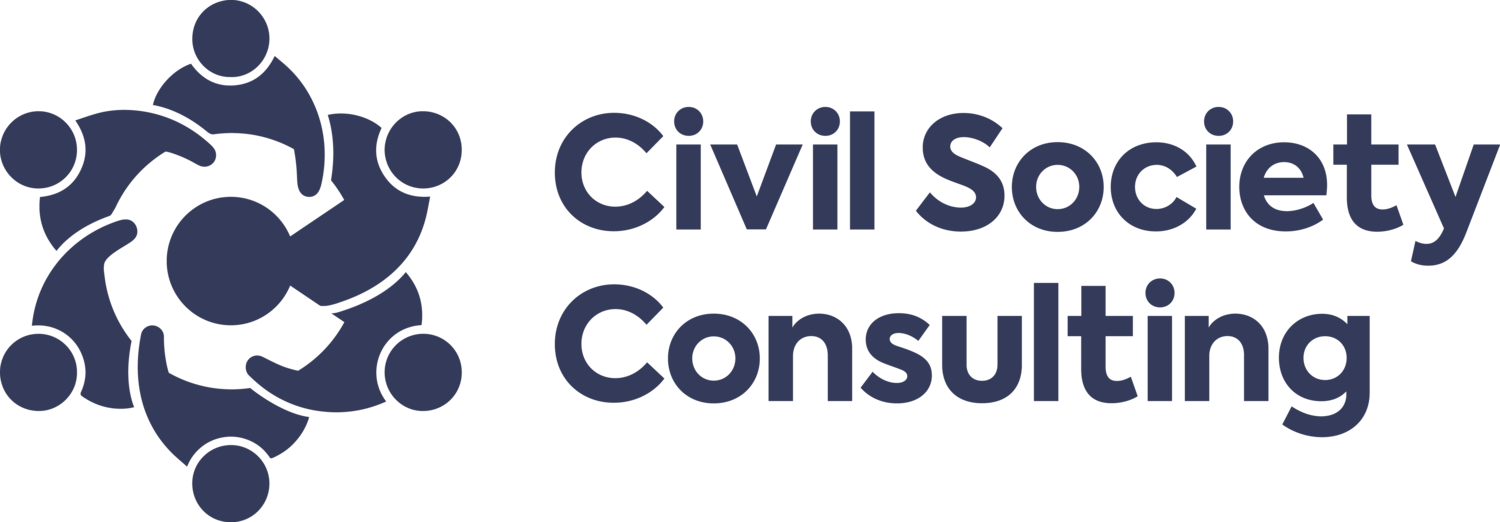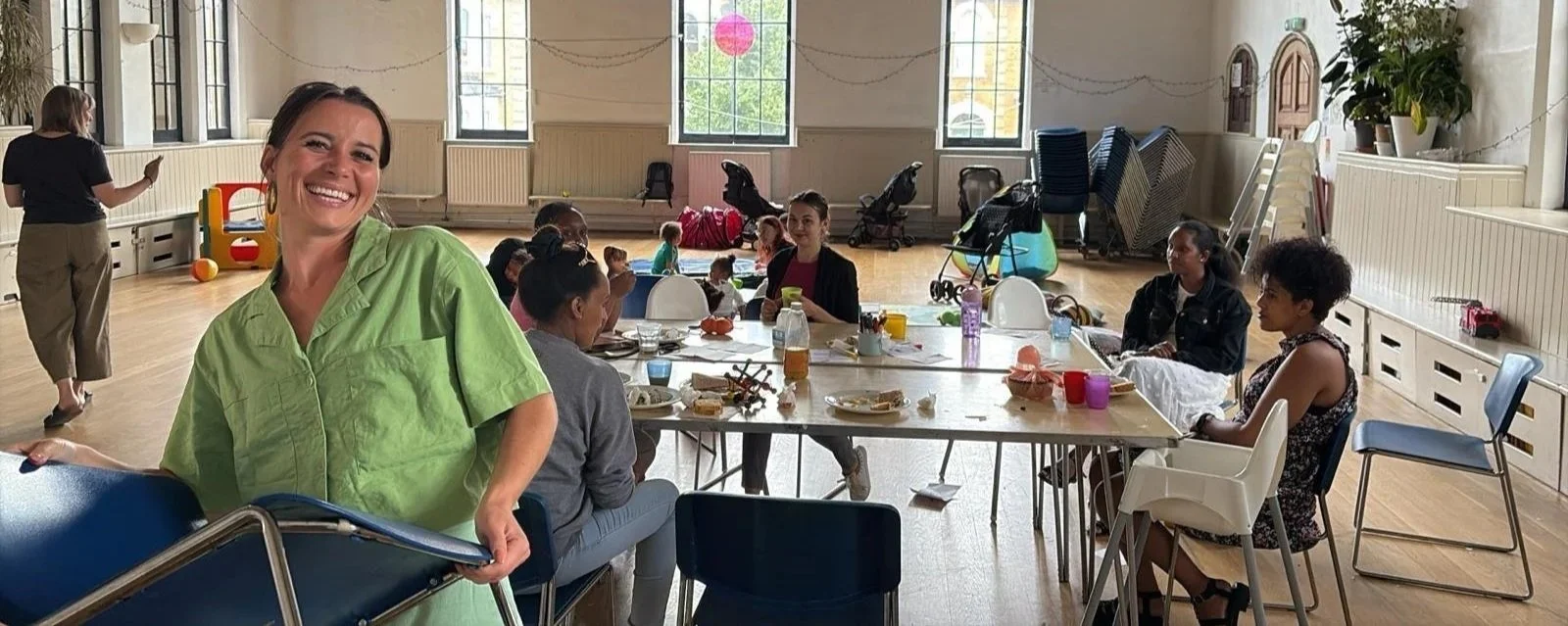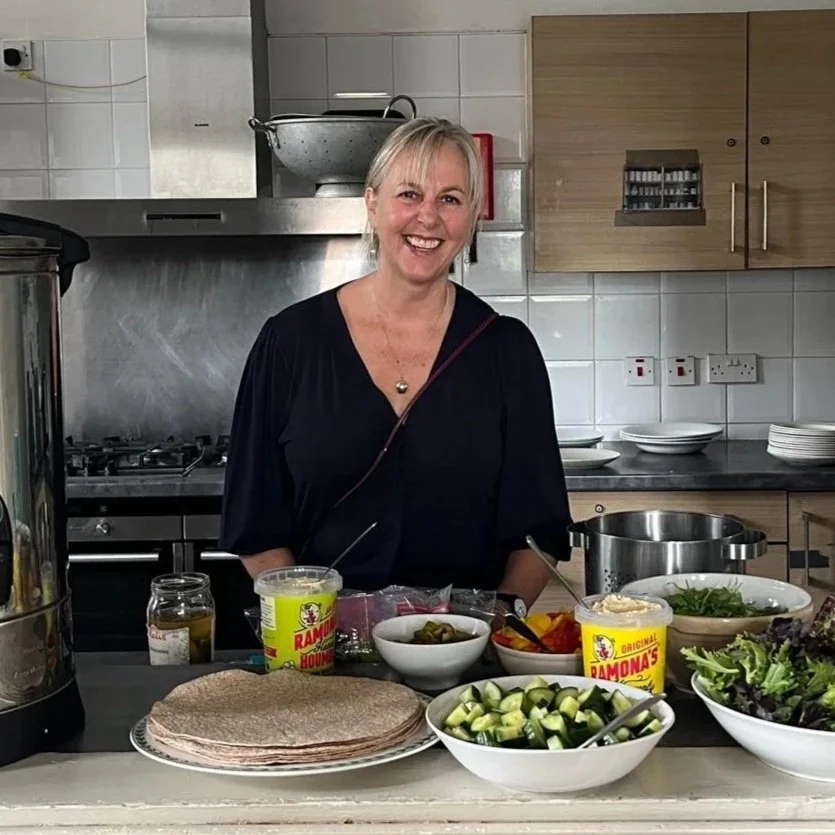NEWS: Rebuilding the village: Our Founder’s PhD research into how we can build community for (and through) parents
Civil Society Consulting is delighted to share that our Founder Director, Natasha Ereira-Guyer, has begun a part-time PhD at the University of Cambridge. Her research as an Evolutionary Psychiatrist sits at the intersection of anthropology, community development, and public health — and is deeply connected to our mission through the Steps to Togetherness movement.
Our Togetherness work is based on a simple but powerful idea: the loss of community (and the ensuing loneliness) lies at the root of many of today’s challenges. Especially the worsening health inequalities and growing social polarisation.
One of the stages of life in which we miss community the most is during early motherhood and parenthood, because bringing up a child is no small feat - we were simply not designed to bring up children without a community of support, it ‘takes a village’. Natasha’s research builds on this idea, asking what does a ‘good’ village look like? Natasha believes that not only do parents need community, they’re also a natural entry point for rebuilding communities, now and for the next generation.
Why the world needs this research
Humans are a profoundly social species. For most of our evolutionary history we lived in small scale societies and raised children within extended networks of family and community. Human beings could have never become the brainy creatures we are today without that setup, so it really does “take a village to raise a child.”
In today’s Western and hyper-capitalistic societies, parents are generally expected to raise children within small nuclear families or even entirely alone as single parents. This is simply not the environment human beings evolved to thrive in, it’s not how our brains or bodies are wired or designed. Therefore, we see high levels of loneliness and perinatal mental health challenges in countries like the UK and USA. Mothers and parents often experience guilt, shame and self-blame because society leads us to believe that they can or should be able to raise children without a village.
The negative impact of our child-rearing cultures and beliefs is not felt equally. Those with financial resources can “buy in” support theoretically or historically provided by a proverbial village — childcare, therapy, mother and baby yoga. For mothers and parents without resources, the presence or absence of a community of support can make all the difference.
Natasha’s research aims to find out the universal ‘ingredients’ of a good village, with an ambition to empower mothers and parents to gather their villages.
The question we need answering
It’s clear that, as a society, we need to support and enable mothers and parents to gather their villages. There is some fantastic research being carried out by Natasha’s supervisor, Prof Nikhil Chaudhary, and the Royal College of Psychiatrists to explore the role of evolutionary theory in changing the narrative around parenting; with a view to lift away feelings of guilt, shame and self-blame and encourage mothers to ask for more help from the ‘villages’. But before we can start telling mothers that they need to gather their villages, we need to know what a good village looks like. Natasha’s research asks this vital question: what does a “good village” look like for parents today?
There are many ways a ‘good’ village can look, because there are many sources and ways that mothers/parents can get the social connection and support they need. However, all ‘good’ villages will share some of the same universal features. Just as we know we all need our five-a-day to get our B12 and Vitamin C, there are no set rules on exactly what combination of fruit and veg we should eat.
Over the next three years, Natasha will be trying to find out the ‘active ingredients’ of a ‘good’ village:
Map the social support networks of mothers and parents across the UK, from a wide range of communities and backgrounds - by delivering creative workshops via a network of charities, grassroots organisations, children’s centres, schools and professional networks.
Compare the villages with one another to identify what ‘happy mums’ living in different contexts have in common - as well as with mothers in hunter-gatherer communities in northern Congo, who live lifestyles much closer to those of our past.
Develop a practical toolkit for charities and grassroots community-led initiatives, based on the active ingredients uncovered: Natasha is expecting to find that, for those without a village, charities and grassroots organisations are filling the gaps. The toolkit will guide and strengthen their work, and also validate much of the work they are already doing to make a stronger case for long-term investment.
How the research will be carried out
Natasha is passionate that academic research can have a positive impact while it’s being carried out: impact doesn’t need to be an add-on or afterthought at the end of a long and extractive research process. Therefore, her data will be gathered through a series of creative workshops with mothers, parents, and carers, co-hosted by trusted individuals from charities, grassroots organisations, children’s centres, schools and professional networks.
Gabrielle Ereira-Guyer, supporting psychotherapist
The workshops are designed to be enriching, and immediately beneficial, for participants. Parents learn about the evolutionary science that demonstrates why no one is ‘designed’ to raise children alone, before taking part in a creative exercise to “map” their own village and a reflective conversation about what they’ve learnt and noticed. Natasha is being supported by a psychotherapist, Gabrielle, who, funnily enough, is also Natasha’s very own mother!
The intention is for mums and parents that participate in a workshop come away with:
Less guilt, shame and self-blame: there is a huge sense of relief when mothers and parents realise that, actually, it’s perfectly natural to struggle when bringing up a child in today’s world without a community of support.
New ideas for how build and strengthen their support networks (and a readiness to ask for help and support).
Stronger bonds, and a shared understanding, with others in the room.
For the organisations, the workshops also generate valuable impact data — helping to evidence and communicate the difference they make.
Want to be involved?
Natasha’s research brings together a range of research partners who are co-hosting ‘it takes a village’ workshops. So far, this has included: Kitchen Club, Babyzone, Kids Matter, the Mums and Tots group at Norwich Mosque, YMCA North Staffs and Bumps, Birth and Belonging:
Become a research partner: Are you an organisation working with mothers and parents? You are invited to work with Natasha to host a workshop, which will directly benefit mothers and parents, whilst gathering valuable impact data for you.
This PhD is not just an academic project; it is part of a wider movement to re-build community through and for parents.
Contribute funding: Natasha’s research needs funding. Are you an organisation working to support mothers, parents or children? Or reduce loneliness in general? In the coming months, Natasha will be starting a crowdfunder to invite organisations with a stake in the research findings to donate anything from £100 to £5,000.
All partners will be regarded as co-owners of the practical toolkit and have an opportunity to contribute to and shape it.
Organisations and supporters who would like to partner, fund, or follow the research are warmly encouraged to get in touch: natasha@civilsocietyconsulting.co.uk




